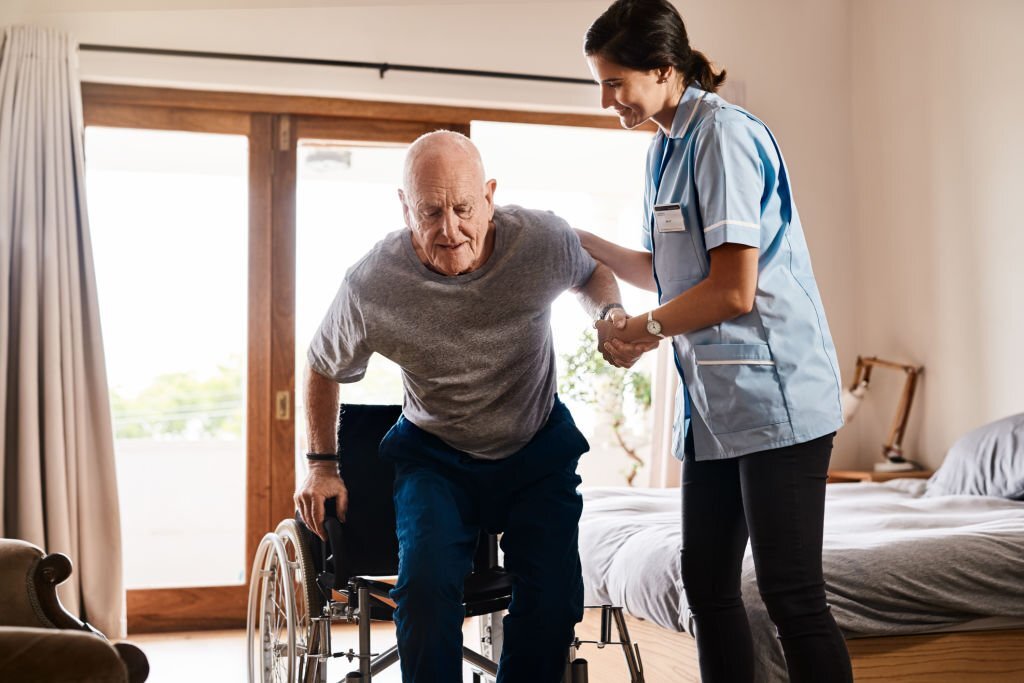The aging process may make even the simplest of jobs more challenging for the elderly. Extra help may be required with things like bathing, dressing, taking medications, and going about the house. In-home care has emerged as a viable alternative to institutional settings like assisted living and nursing homes, particularly for seniors who place a high importance on maintaining their independence as they age. This article explains in detail how elder care in the home might benefit your aging loved ones.
In-home care is a viable option for seniors since it allows them to stay in their familiar environments as they age. The stability and familiarity of home may be a tremendous source of comfort and security for seniors with cognitive or physical limitations. Those of retirement age who choose to age in place in the comfort of their own homes may continue to do so.
In-home care services provide seniors with individualized care programs to meet their unique requirements. Caregivers collaborate with seniors and their families to develop an individualized care plan that addresses the senior’s specific needs. Whether it’s aid with ADLs, medication management, mobility help, or just companionship, our individualized approach makes sure that seniors get what they need.
Home care services let elders maintain their independence and pride. Maintaining Independence in everyday activities and healthcare decision-making gives seniors a feeling of agency and control over their lives. Home health aides help elderly people with daily duties while allowing them to maintain their independence. This helps elders keep their pride and dignity, which is important for their mental health.
Home care gives the caregiver the opportunity to focus only on the elderly patient. More individual attention and companionship may be given to each patient receiving in-home care as opposed to care in a nursing home or assisted living facility. A caregiver may become an elderly person’s social and emotional anchor, and they may grow to cherish their time spent with them. Care takers may encourage socialization among their senior clients by exposing them to stimulating discussion, enjoyable hobbies, and other activities that boost cognitive function and emotional health.
In-home care increases elders’ security and convenience. Help from caregivers in the form of fall prevention strategies, medication management, and mobility assistance may significantly lessen the likelihood of harm occurring. The physical wellbeing and cleanliness of the elderly may be ensured by providing them with help with personal care duties such as washing, clothing, and grooming. Caregivers who visit their elderly clients’ homes may help make the house a safer place to live by clearing clutter and other possible trip hazards.
Home care may be more cost-effective than assisted living or nursing home care. Getting assistance at home, rather than spending money on an expensive facility, might end up saving seniors money. Seniors who choose to age in place may save a significant amount of money by avoiding the expenses of relocating or enrolling in an assisted living facility. For seniors on a tight budget who still need help, in-home care may be the best alternative since it gives the seniors and their loved ones greater say over each aspect of care.
Knowing that a loved one doesn’t even need to leave their home to get top-notch care might provide peace of mind to worried family members. Caregivers may keep family members in the loop by providing regular updates on the senior’s health and wellbeing. Knowing that their loved one’s care is in the hands of professionals may provide them some peace of mind. When a loved one is sick or wounded, it may be difficult for family members to focus on their own recovery without some assistance. In-home care might be the solution.
There is more leeway in the kind and intensity of help offered when care is delivered in the patient’s own home. The degree of assistance provided to a senior may be adjusted as needed. Seniors might get everything from basic housekeeping and laundry services to emotional support and socialization from their caregiver. Personalizing geriatric in-home care to meet the requirements of each patient is conceivable.
Care given in the comfort of one’s own home is better than that given at an assisted living facility or nursing home. Allowing elderly individuals to stay in their own homes has been argued to be beneficial to their mental and physical health since it allows them to maintain familiar routines and surroundings and provides ready access to preferred foods. During in-home visits, care takers may administer medications, check on patients with chronic diseases, and promote healthy practices.
The emotional and mental health of elders may benefit immensely from having care provided in the comfort of their own homes. Seniors who get care from caregivers often report feeling less lonely, depressed, and anxious as a result of the positive social interactions and company they receive. Seniors may benefit from cognitive and emotional well-being when their caregivers encourage them to participate in meaningful discussions, activities, and hobbies. For seniors, Being at home may have additional benefits for their mental health by lowering stress and worry.
A family caregiver who is taking care of elderly loved ones may benefit greatly from receiving some time off. In-home care may offer this break. In-home care may provide respite for family caregivers by dividing up the caregiving chores and reducing the strain on individual family members. Caregivers may avoid burnout by taking advantage of in-home respite care provided by professionals. As a result, family care takers are better able to look for themselves while making sure. Their loved one gets the best care possible.
When an individual receives in-home care, the same caregiver or a small team of caregivers may provide consistent care over time. Because of this, older citizens can develop a strong bond with their caregivers and get consistent, reliable care. By learning the senior’s likes, dislikes, habits, and medical history, caregivers may deliver care that is compatible with the senior’s wishes and needs. Better health outcomes and more contentment in old age are possible because of this commitment to continuity of care.
Home care for the elderly may be helpful. Home care gives the elderly the help they need with daily tasks without jeopardizing their autonomy, independence, or dignity. The mental and emotional well-being of seniors may greatly benefit from receiving care in their own homes, since this enables them to maintain their usual routines and circle of support. It is hoped that this will provide the elderly with more happiness and contentment.
Personal care is only one aspect of the many services provided by in-home caregivers. This means that senior citizens have a greater chance of experiencing a sense of safety and comfort in their own homes.


